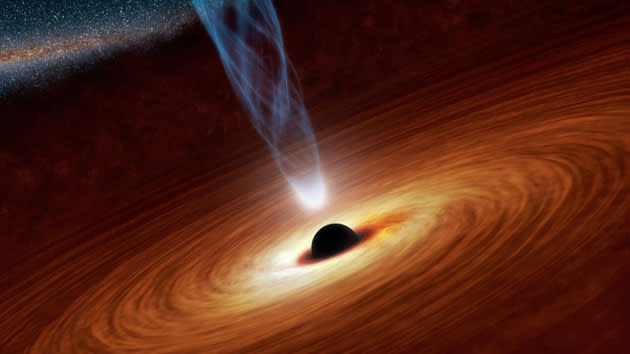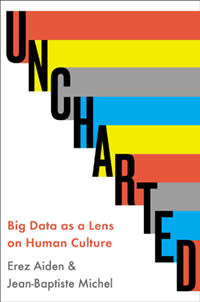Alt-Week 12.7.13: Wormhole short-cuts, watery planets and history as seen by Google Books

Alt-week takes a look at the best science and alternative tech stories from the last seven days.
Don't pack your bags just yet, but Hubble has found indirect evidence of water on five different planets -- a lot of it, in some cases. Bigger brains than ours are also speculating that like black holes, distant particles can be bridged by a wormhole, creating space short-cuts. Back on earth, a new book called Uncharted tackles nothing less than all the trends in recorded history using eight million Google books. No big whoop, right? It's Alt-Week.
Planets outside our own solar system or "exoplanets" are too remote to be directly imaged on whole, let alone down to details like flying cars. Recently, though, astronomers have been able to find evidence of water on such bodies by measuring the light from a parent star during planetary transit using Hubble's Wide Field Camera 3. Their atmospheres absorb certain wavelengths of light from the stars which the aging telescope can pick out, indicating the gases it might contain. Five so-called hot Jupiter planets were found to contain water vapor, even though they were partially obscured by atmospheric dust. Scientists say the new findings should let them map other waterworlds and even compare H20 quantities between hot and cold planets -- putting another notch in Hubble's belt.

Ah, theoretical physics: you enchant us with your big ideas, then confuse us with the details. For instance, wormholes are a hypothetical bridge between two black holes that could let you "break" the speed of light by instantly crossing a huge gulf in space. Another possible way to get around Einstein's unbreachable constraint is quantum entanglement, which enables two linked particles to instantly communicate across astronomical distances. Scientists have now paired these two strange concepts, saying that quark and anti-quark particles, for instance, can be wedded in space by a sort of tiny wormhole. If that makes you picture instant communication devices, unfortunately such a bridge could only exist in a theoretical 4D universe, not in our humdrum physical one. Still, since wormholes are part of Einstein's general relativity while entanglement is pure quantum mechanics, researchers hope such work could one day bridge the two fields -- a goal we've spent a lot of time and money trying to achieve.

Now that your mind has been thoroughly bent, take a deep breath: TED fellow JB Michel and scientist Eric Aidan have done all the work in creating their new book, Uncharted. The pair were responsible for Google's engrossing Ngram Viewer, which used the search giant's eight million strong Books collection to examine the evolution of human history and trends. The book explores how they created that project and pores over some of the more interesting findings, like the speed at which technology spreads and how language has changed over time -- when we went from "doughnut" to "donut," for instance. Until it goes on sale December 26th, the pair are whimsically tweeting out the book at @unchartedngrams, though unfortunately it's in alphabetical order by word. Since that won't help you much, you can also play with Ngram, if you haven't already -- just be careful not to fall into a time-sucking black (donut) hole.

